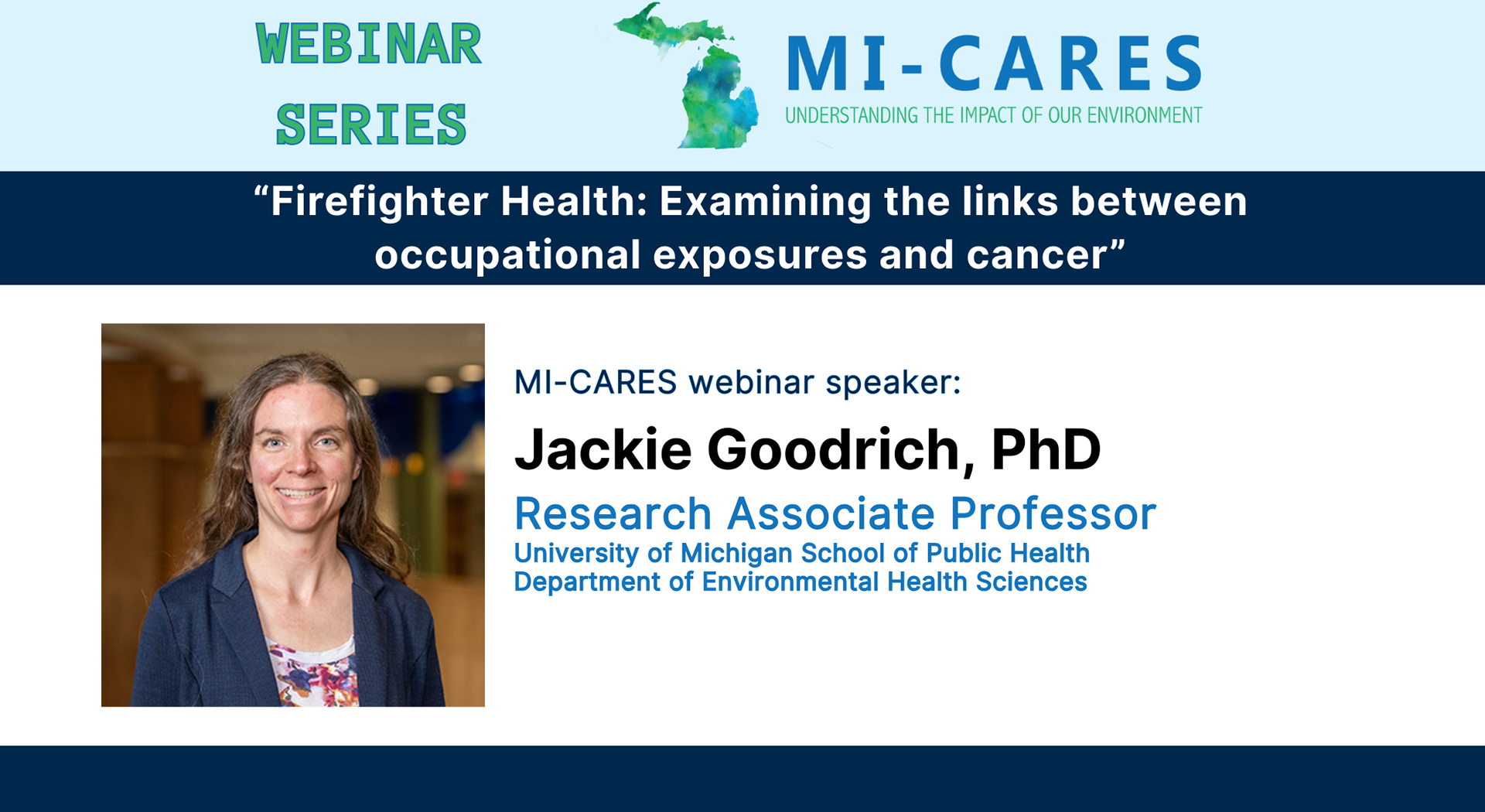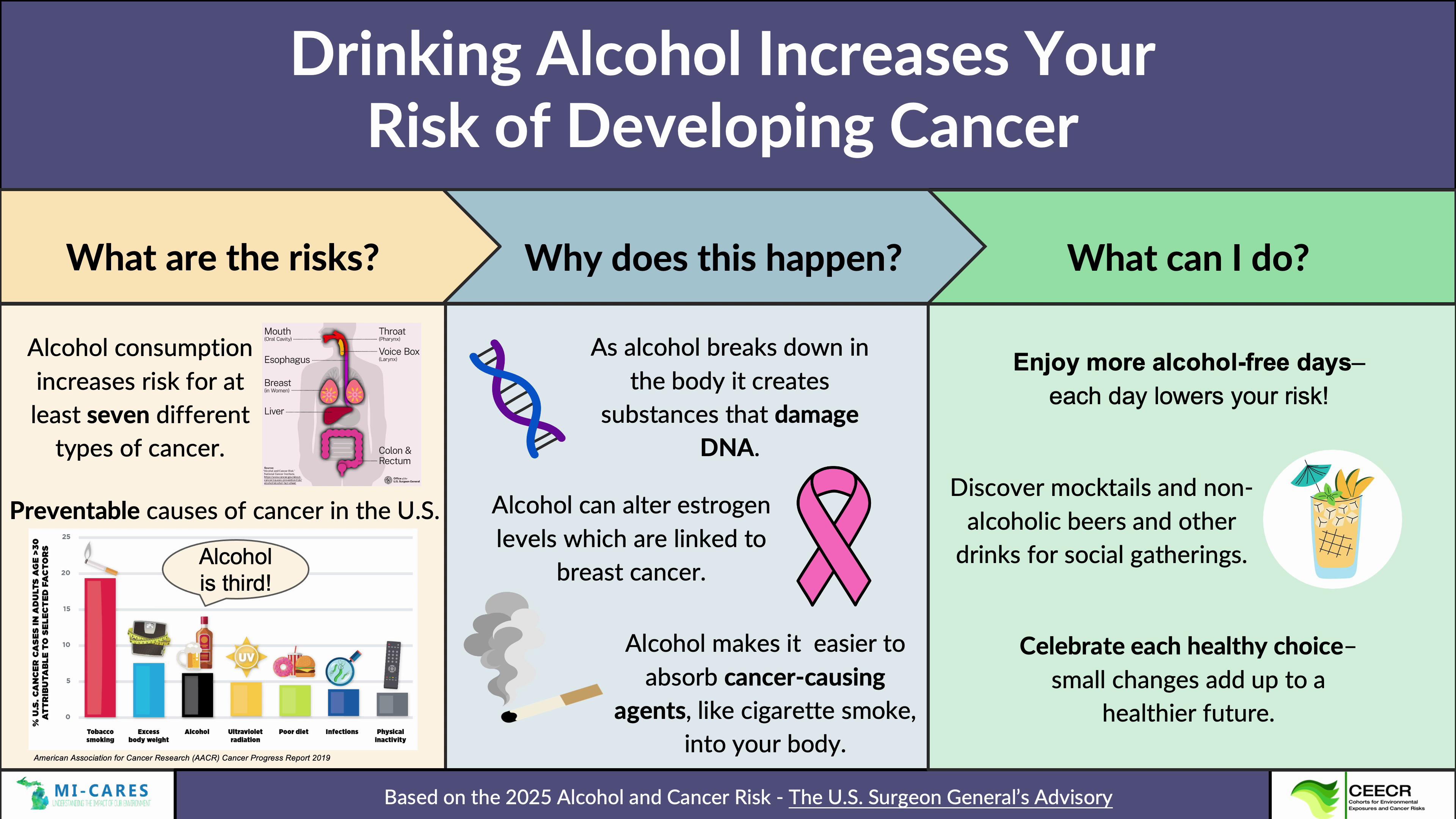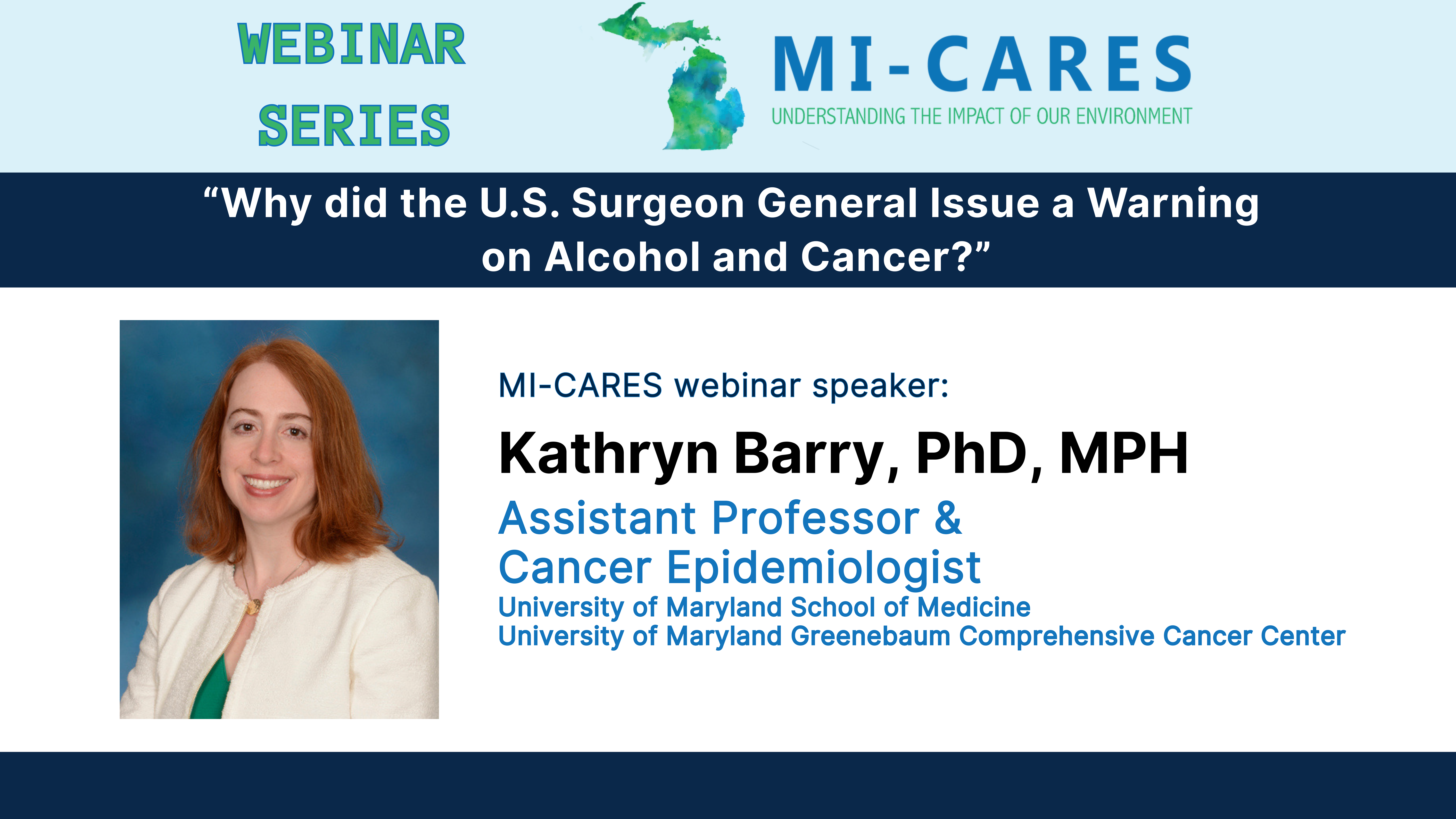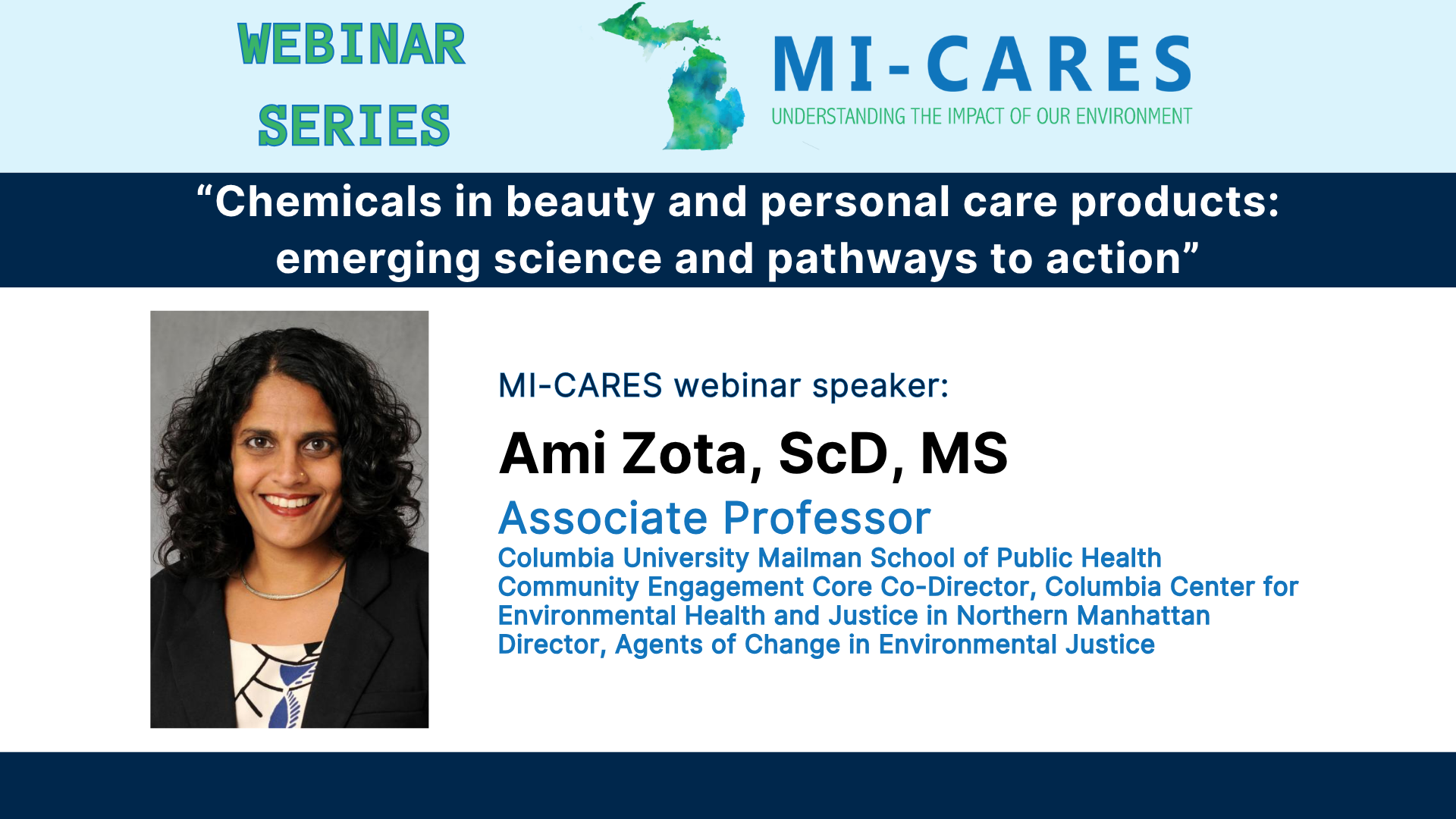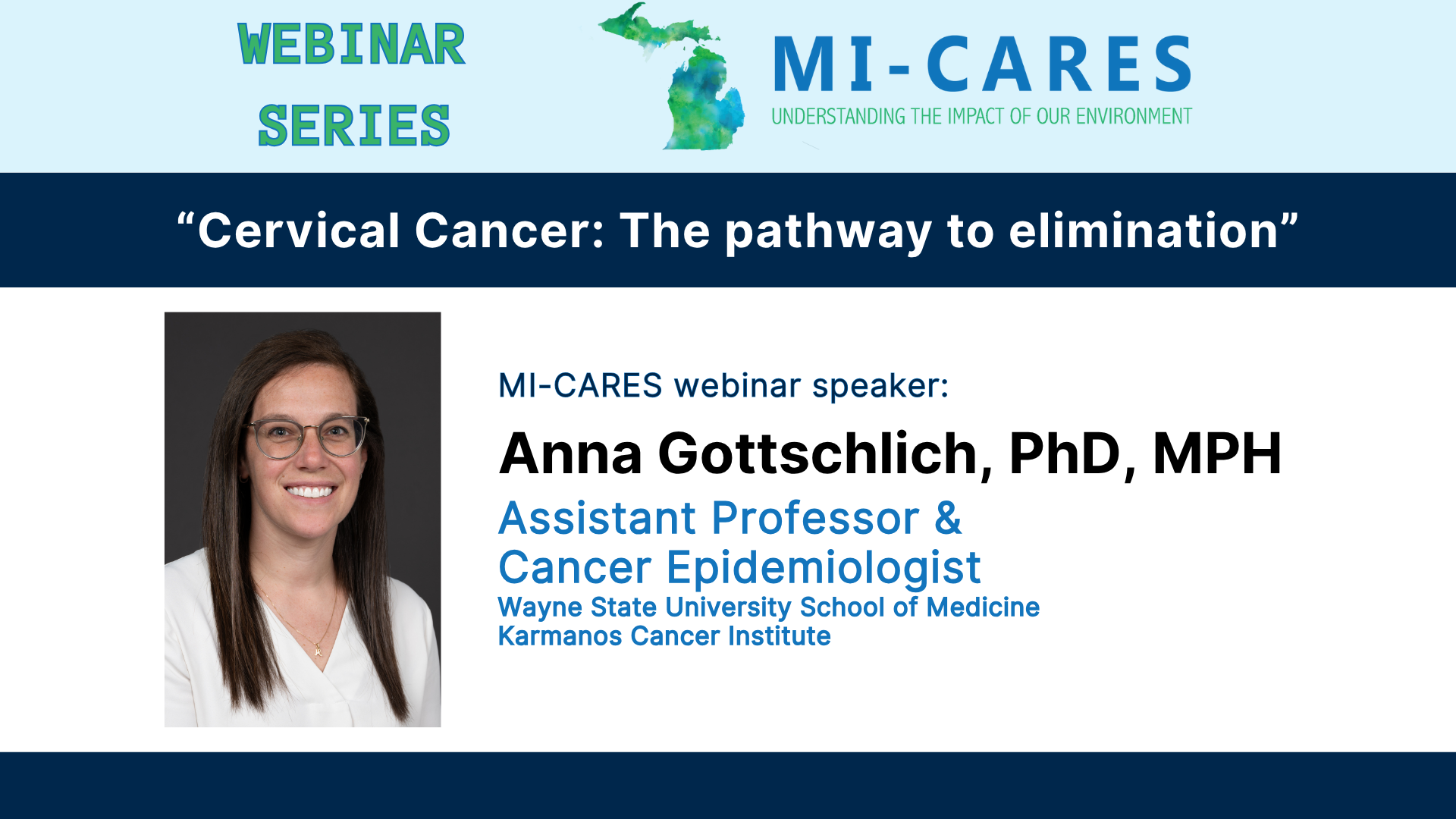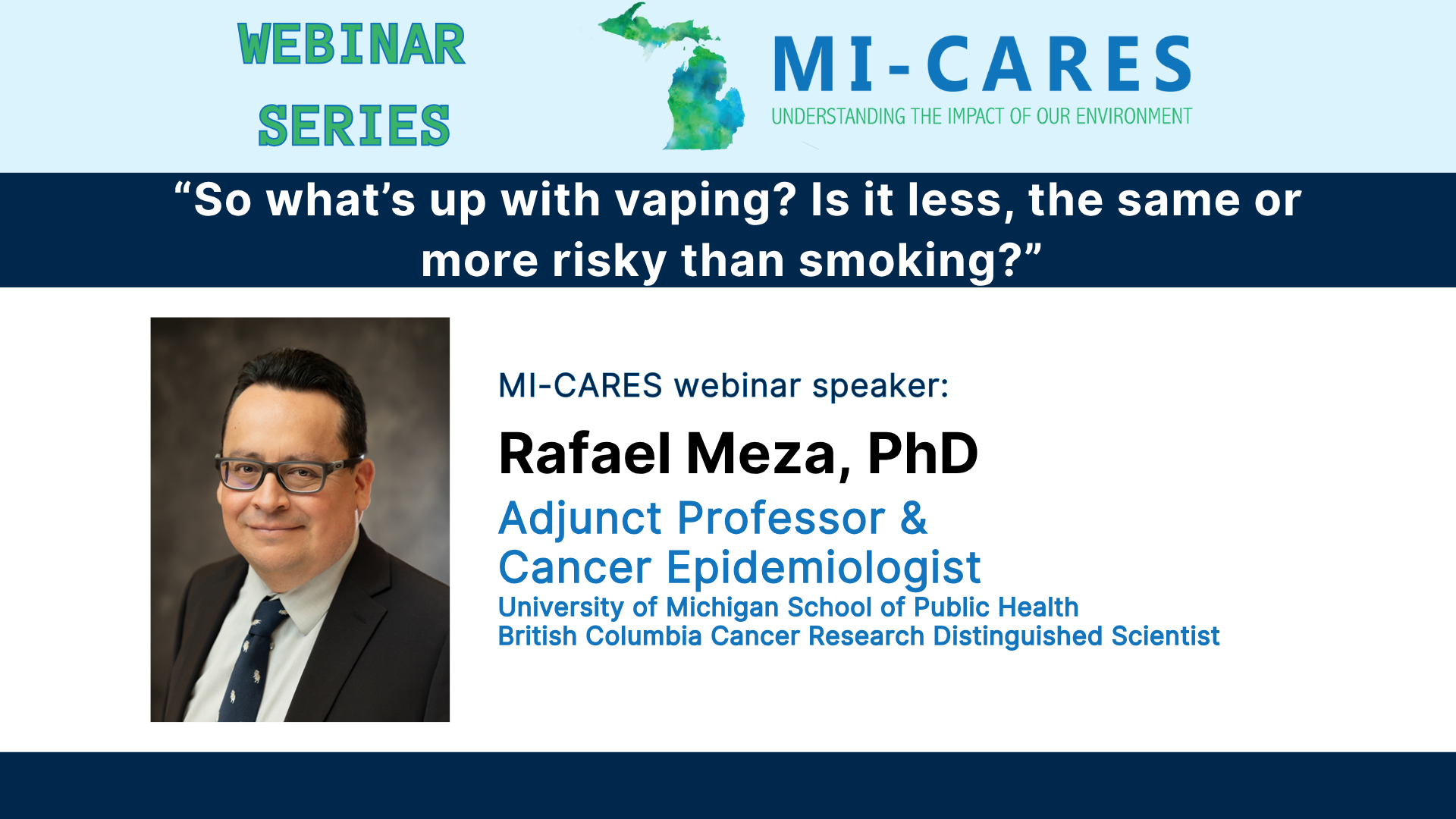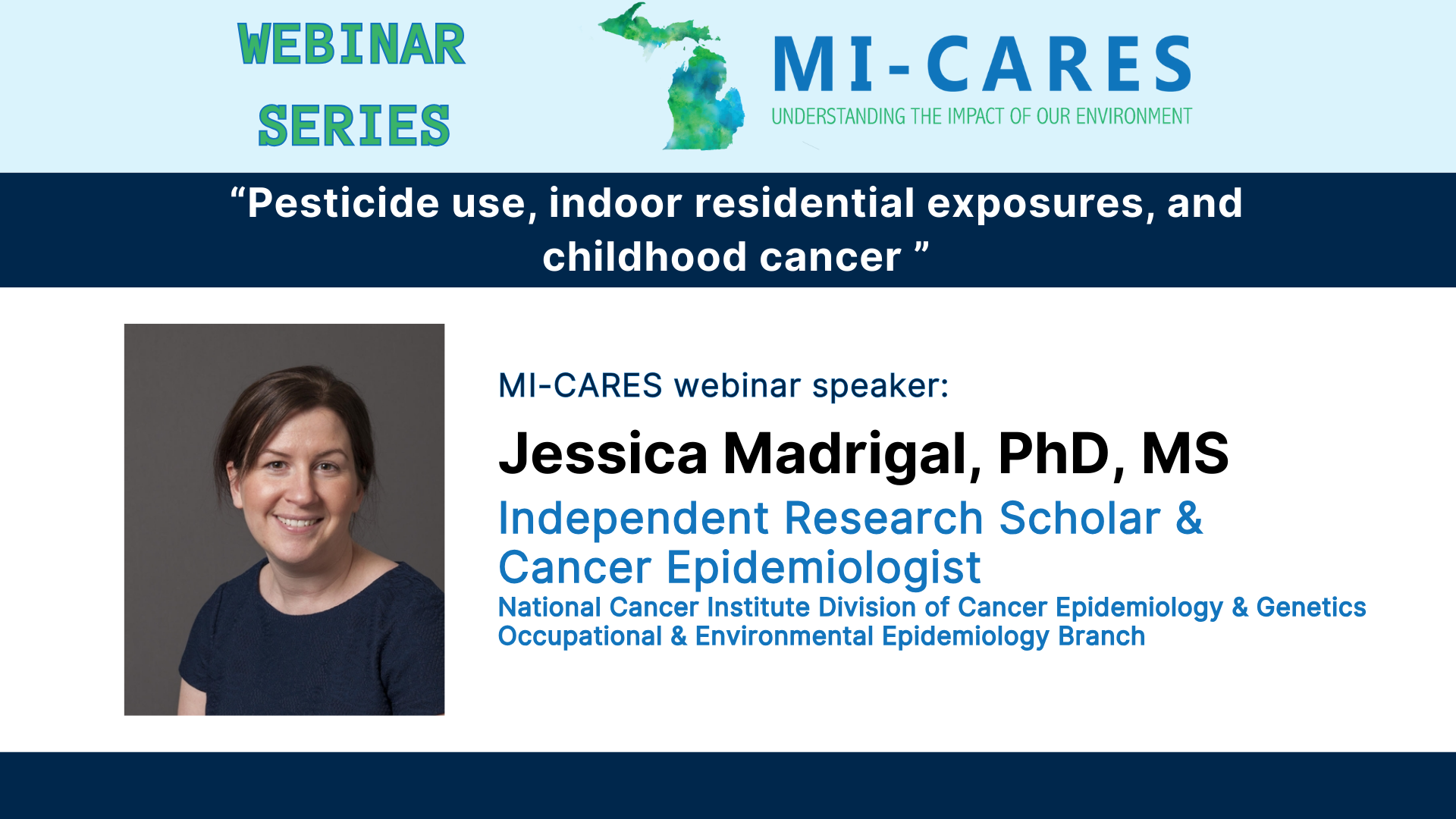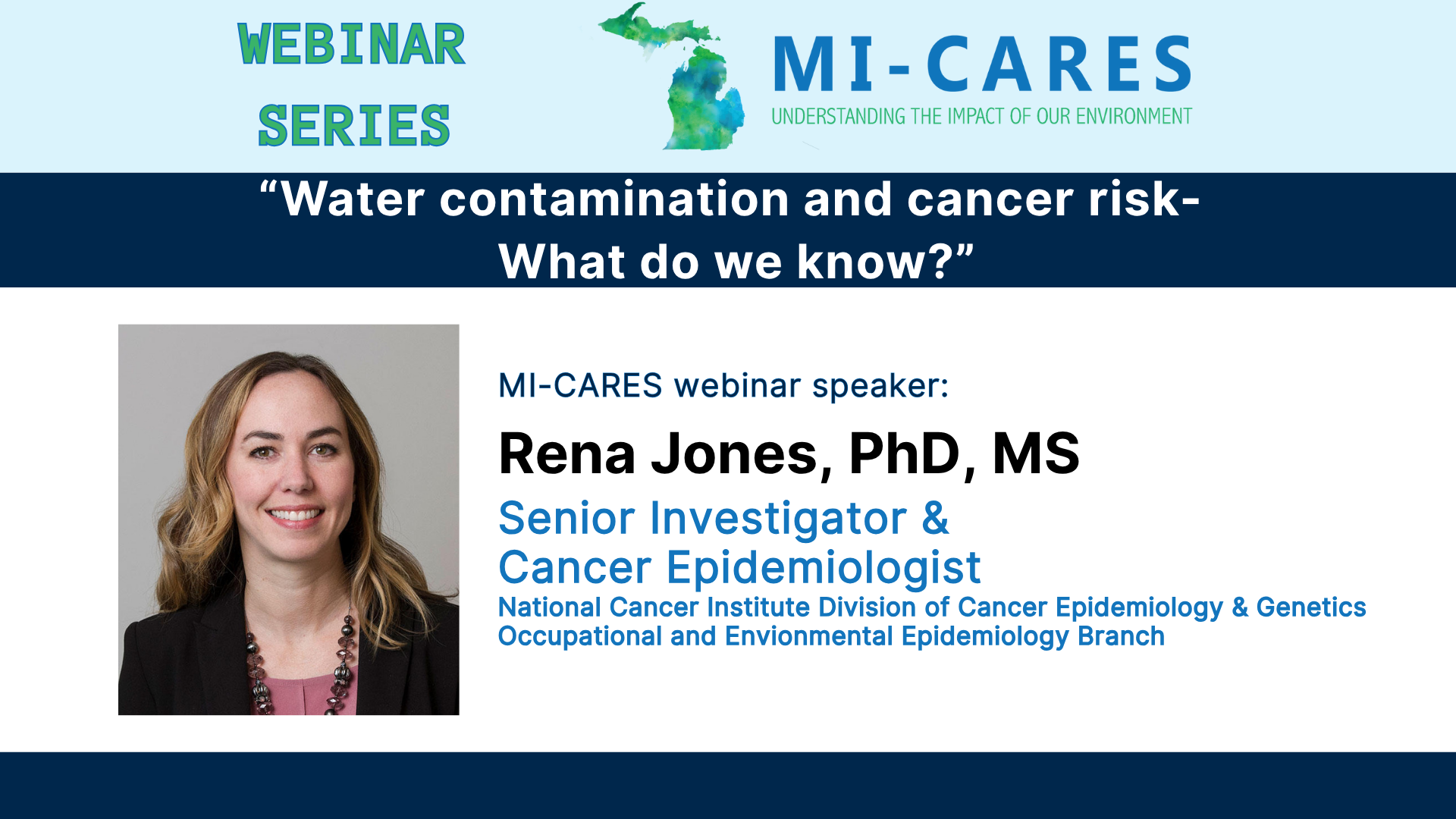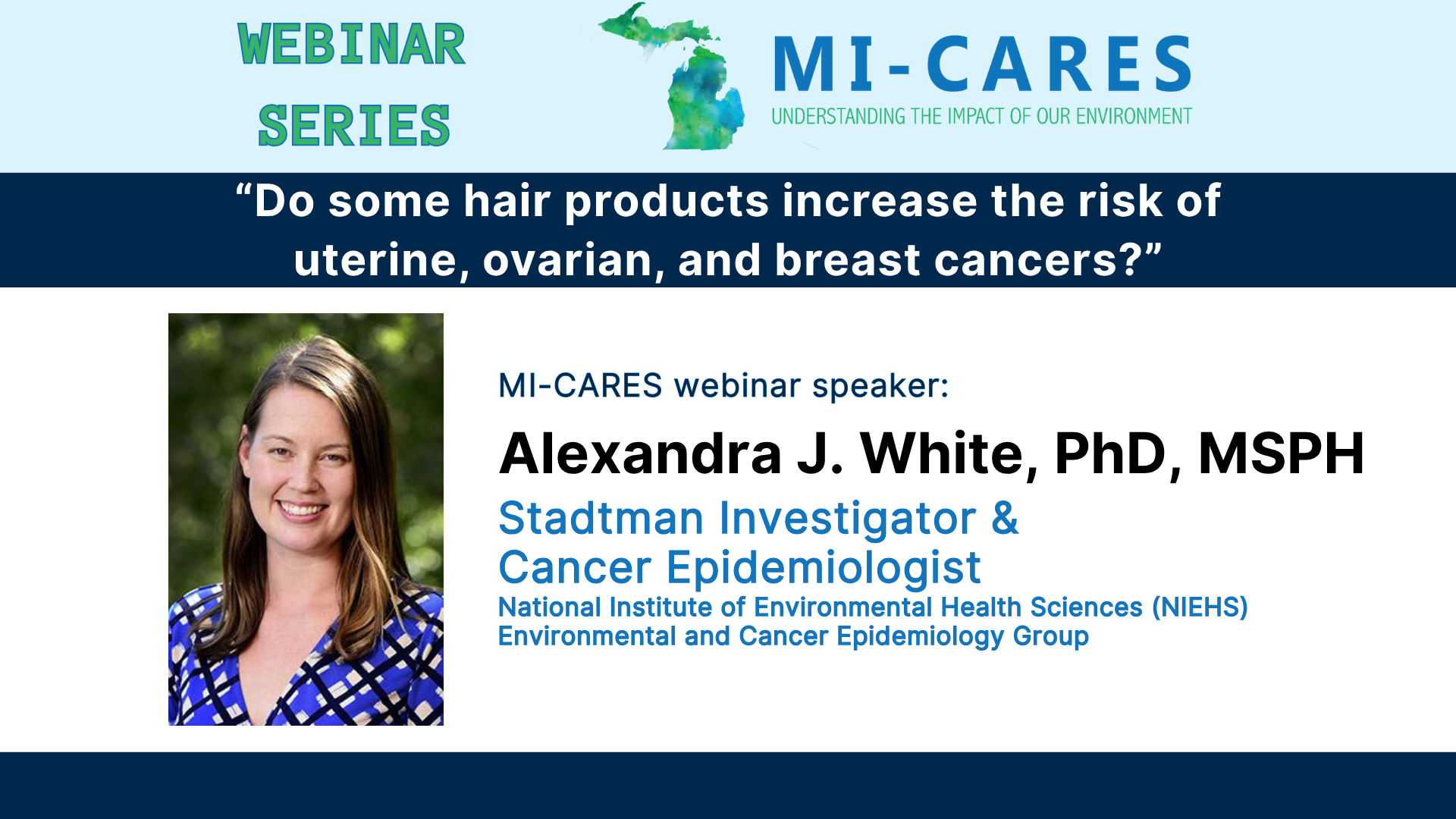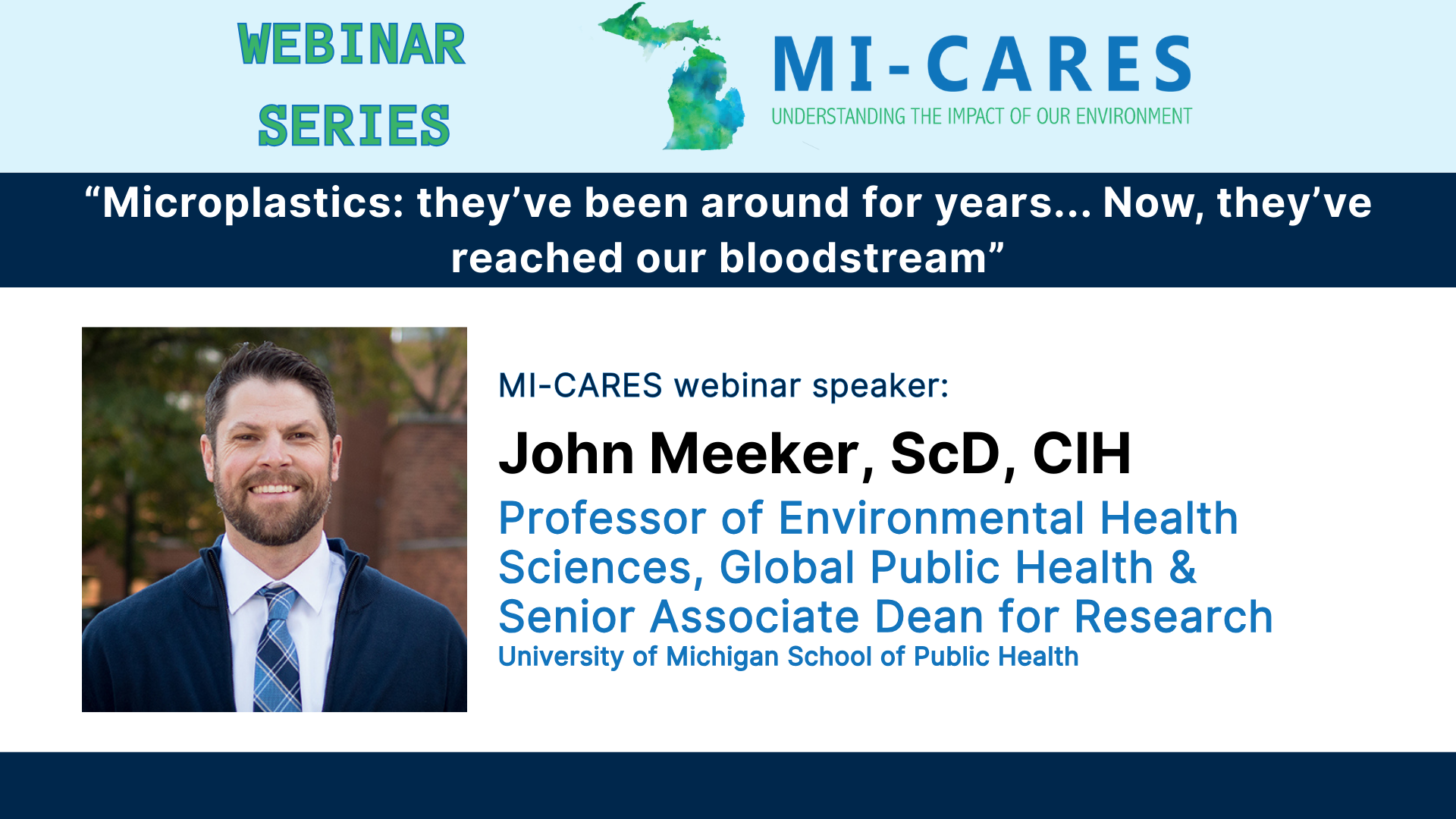News & Resources
Video: “Firefighter Health: Examining the links between occupational exposure and cancer”
Watch this webinar on YouTube.
Subscribe to the MI‑CARES YouTube channel.
Dr. Jackie Goodrich, research associate professor of Environmental Health Sciences at U-M’s School of Public Health, investigates how chemicals like PFAS and heavy metals alter DNA and increase disease risk—particularly in children, women, and firefighters. Her discoveries have advanced strategies to better protect vulnerable populations.
Video: “MI-CARES Podcast: Drinking Alcohol and Cancer Risk”
Watch this webinar on YouTube.
Subscribe to the MI‑CARES YouTube channel.
Surgeon General advisories are a rare occurrence, only issued when there’s strong, urgent scientific evidence about a major public health risk. While we’re all used to seeing warning labels about drinking while pregnant or driving under the influence, this advisory highlights a risk that doesn’t usually get much attention- alcohol’s link to cancer. To learn more about the 2025 U.S. Surgeon General’s Advisory on Alcohol and Cancer Risk, visit https://myumi.ch/Nr86z
Video: “Why did the U.S. Surgeon General Issue a Warning on Alcohol and Cancer?” with Kathryn Barry, PhD, MPH
Video: “Chemicals in beauty and personal care products: emerging science and pathways to action”
Watch this webinar on YouTube.
Subscribe to the MI‑CARES YouTube channel.
Additional resources:
“How everyday beauty products could pose a toxic health threat” in the Washington Post
“Formaldehyde and Formaldehyde Releasing Preservatives in Personal Care Products Used by Black Women and Latinas” in Environmental Science & Technology Letters
Video: "Cervical cancer: The pathway to elimination" with Anna Gottschlich, PhD, MPH
Video: “So what's up with vaping? Is it less, the same, or more risky than smoking?” with Rafael Meza, PhD
Video: “Pesticide use, indoor residential exposures, and childhood cancer” with Jessica Madrigal, PhD, MS
Dr. Madrigal’s research focuses on the investigation of environmental exposures, health equity, and cancer risk. She is a research scholar in the Occupational and Environmental Epidemiology Branch of the Division of Cancer Epidemiology & Genetics at the National Cancer Institute.
Video: “Water contamination and cancer risk - what do we know?” with Rena Jones, Ph.D., M.S.
Dr. Jones's research focuses on the investigation of cancer risk associated with environmental contaminants, especially air and water pollutants. She earned her M.S. and Ph.D. degrees in epidemiology from the University at Albany (State University of New York) School of Public Health. She joined the National Cancer Institute's Occupational and Environmental Epidemiology Branch (OEEB) in 2012.
Fact or Fiction: Skin Cancer
- Exams
- UV Rays
- Age
Podcast: Putting oncologists out of business
MI-CARES principal investigators and Professor of Epidemiology Celeste Leigh Pearce digs into her team's extensive work on cancer research, focusing on ovarian, breast, and cervical cancers. Pearce outlines the possibilities of eradicating cervical and potentially other cancers through vaccination, screening and early detection. Her team puts a strong emphasis on disease prevention, aiming to lessen the occurrence of cancer cases. The ultimate goal is to put oncologists out of business — in other words, to leverage screening and other prevention tools that Pearce believes could ultimately eradicate certain cancers altogether.
Podcast: A data-driven fairytale
Bhramar Mukherjee, professor of Biostatistics at the University of Michigan School of Public Health, explains how biostatistics helps make sense of big data for medical prevention and treatment and how she encourages her students to stay patient, optimistic, and attuned to their own inner voices in their pursuits. You don't need to be a math person to enjoy her journey.
Video: Dana Dolinoy, PhD Explains the Role of Epigenetics in Environmental Exposures and Health
The epigenome is the instruction book that tells our genes when and how to turn on - and how to react to environmental influences. Researchers at the University of Michigan Rogel Cancer Center and School of Public Health are studying how changes in the epigenome could be early indicators of cancer.
How does exposure to ‘forever chemicals’ impact your cancer risk?
“As a cancer epidemiologist, the opportunity to put together a cohort that really has the potential to help us understand these important exposures is the pinnacle of what we do,” said Leigh Pearce, co-principal investigator of the Michigan Cancer and Research on the Environment Study, or MI-CARES.
Read more at Michigan Medicine.
Video: Do some hair products increase the risk of uterine, ovarian and breast cancers?
Dr. Alexandra White, Epidemiologist with the National Institute of Environmental Health Sciences led the third installment of our mini-webinar series.
Issue #2
Please see our MI-CARES updates!
Issue #1
Introducing the MI-CARES Bulletin!
Hair products can cause uterine cancer
Using chemical hair straighteners increases the risk of getting cancer in the uterus. Check out this infographic to learn more about this issue and how you can stay healthy.
Colon cancer is increasing in young adults
Colon cancer has become more common in people under age 50. Check out this infographic to learn more about the causes for this and how you can stay healthy.
Webinar: Microplastics in the environment
Microplastics are tiny pieces of plastic that have a diameter of less than 5 mm - about 1/4 the size of a penny. They end up just about everywhere in the environment: in soil, water, indoor air, food, and more. Dr. John Meeker from the University of Michigan School of Public Health discusses sources of microplastics, how they get into the environment, and what that might mean for human health.
Webinar: The Rise of Colon Cancer Rates Among Young Adults
While rates of colon cancer have been decreasing in people over the age of 50, they are increasing in younger people. 1 in every 10 colon cancers is now diagnosed in somebody under the age of 50. Colon cancer is preventable if caught early. This webinar, presented by Dr. Elena Stoffel from University of Michigan’s Rogel Cancer Center, explores possible causes for this trend and ways to stay healthy.
From outside to inside
Every day you’re exposed to plastics and chemicals in products and the environment.
Do you know which things can get into your body? Check out this infographic to test your knowledge now!
University of Michigan recruiting subjects for study that showcases contaminant exposure (WDIV Channel 4 News)
Over the years in Michigan, we've seen many situations where people have been exposed to contaminants in the environment that can harm their health which includes lead and PFAS. Now a statewide study is in the works to better understand the impact of that exposure. The study is called MI-CARES.
Volunteers needed for University of Michigan study of link between environment, risk of health problems (Fox 2 Detroit)
The University of Michigan is seeking volunteers for a long-term study on how the environment impacts the risk of developing health problems, such as cancer.
U-M researchers to track cancer risk from environmental exposures (The University Record)
A new study from researchers at the University of Michigan's School of Public Health and Rogel Cancer Center will describe and quantify the impact of known and suspected environmental exposures on cancer risk. The program, called MI-CARES, or Michigan Cancer and Research on the Environment Study, is funded through a $13 million grant from the National Cancer Institute.
What causes cancer in Michigan? U-M study hopes to find out. (mlive.com)
The study seeks to follow about 100,000 volunteers over the next six years through the completion of annual surveys. The extensive questionnaires will gather information including past and current residency, family health history, personal care and hygiene product use, diet, sleep quality, and sun exposure.

